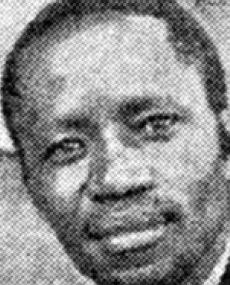
Thembekile Enoch kaTshunungwa
National organiser of the African National Congress (ANC) in the mid-1950s and later a prominent figure in Transkei politics, Tshunungwa was born in 1923 in the Transkei and was a member of the Tembu royal house.
He studied at Lovedale in the mid-1940s, then worked as a teacher until 1949. In the early 1950s he joined the ANC Youth League in East London and was soon an executive committee member of the Cape ANC. When Robert Matji was banned in 1954, Tshunungwa assumed the duties of Cape provincial secretary and was formally elected to that office in 1955. By this time he was a Queenstown businessman. Co-opted onto the ANC national executive committee and appointed ANC national organiser in 1954, he undertook much of the preparatory work for the Congress of the People and was one of its speakers at Kliptown outside Johannesburg in June 1955. Several months earlier he had been endorsed out of Queenstown and forced to return to Tembuland, where he began to explore the possibilities of working with his cousin, Chief Kaiser Matanzima, in the Transkeian government that was soon to be created under the Bantu Authorities Act. In December 1956 he was arrested and charged with treason and spent the next four and a half years as a defendant in the Treason Trial in Pretoria.
During the course of the trial, factional disputes erupted in the Cape, and Tshunungwa found himself increasingly at odds with the ANC left wing and in sympathy with the emerging Africanist movement, which eventually became the Pan Africanist Congress. Following his acquittal in the Treason Trial in 1961, he became an aide to Matanzima and a member of the Transkeian Parliament.